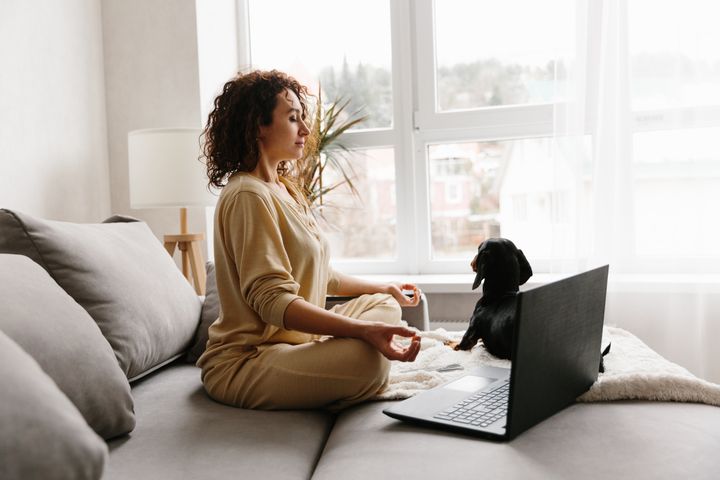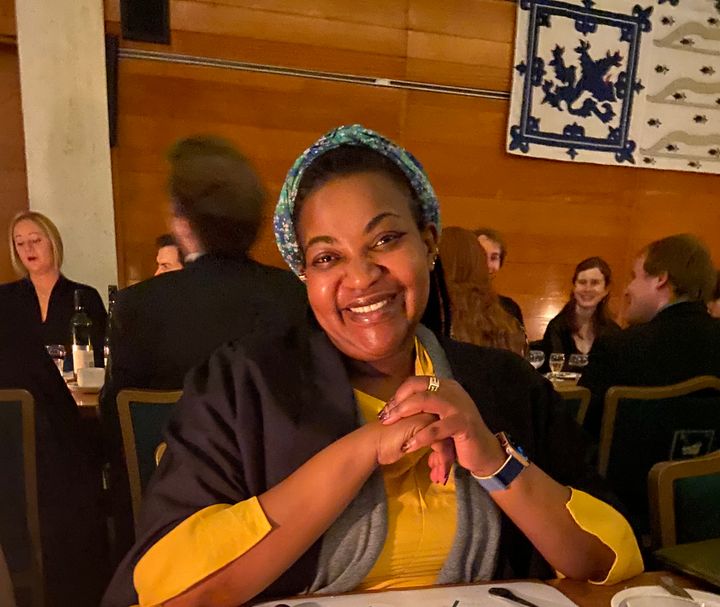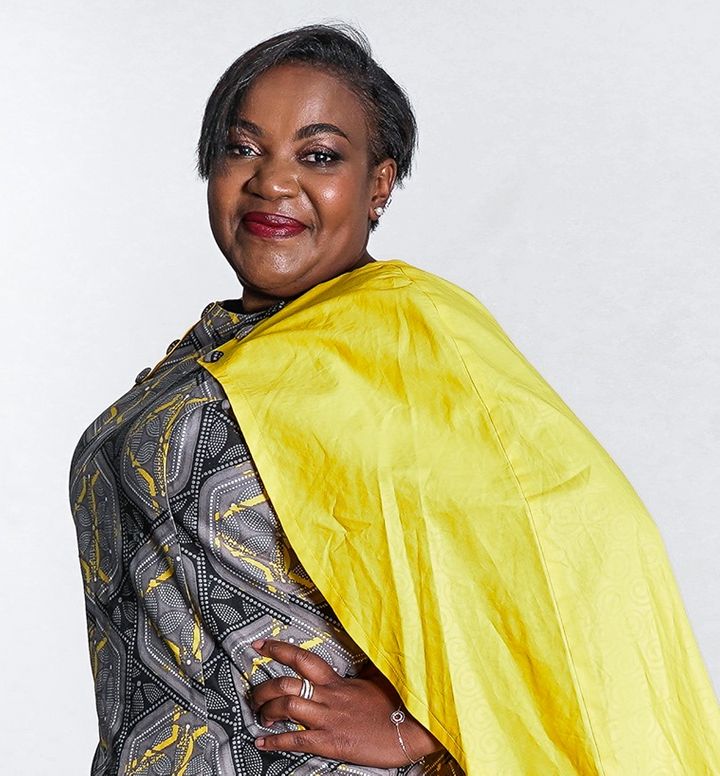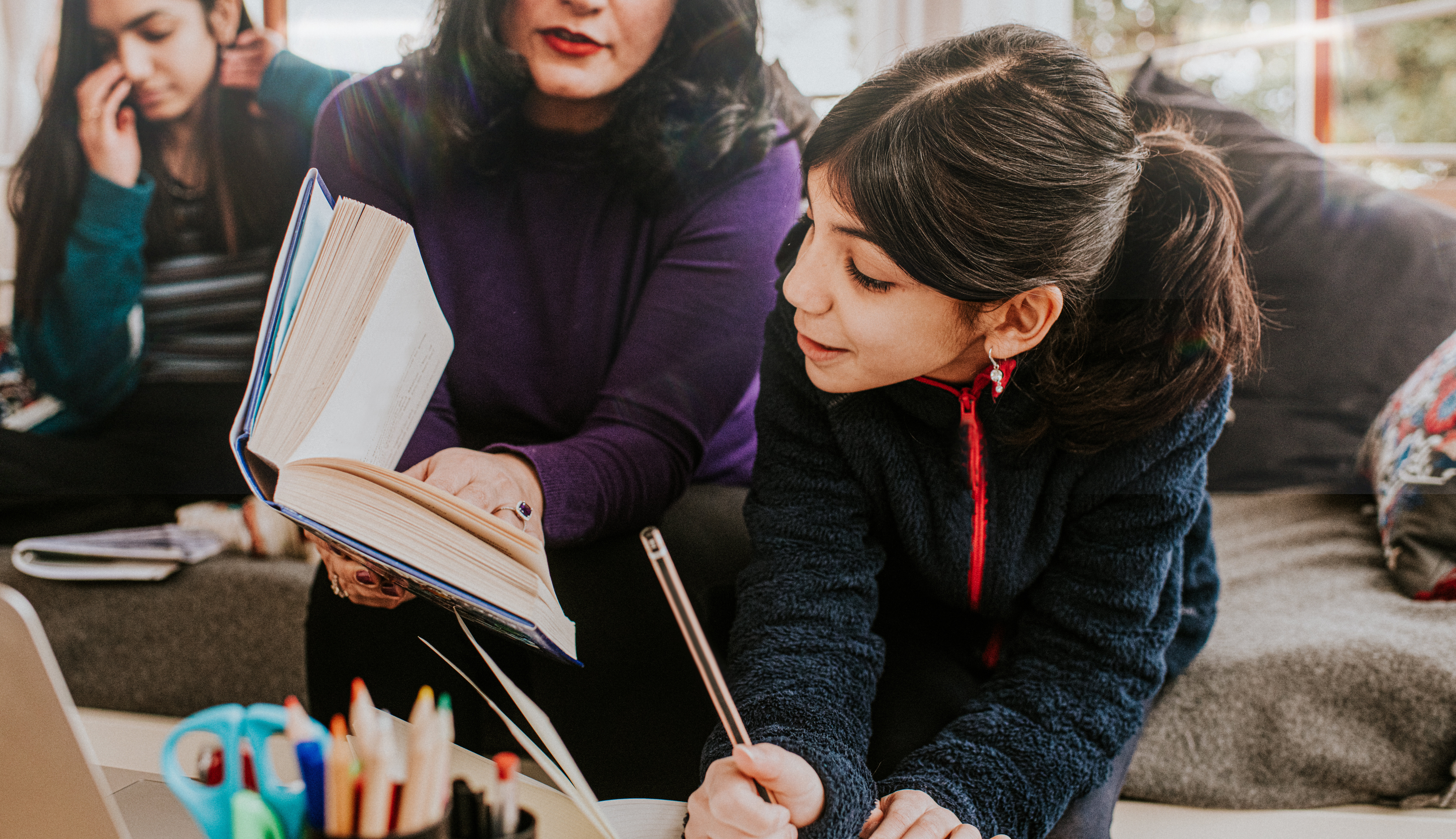
Back-to-school season is full of anticipation for both kids and parents. New teachers, new routines and new friends are all exciting but can also provoke anxiety for everyone involved.
HuffPost asked therapists who work with parents about what issues they tend to bring up this time of year. Here’s what they said.
Advertisement
Kids’ learning needs
Though few pandemic-related educational shifts were positive, one potentially helpful development was that when students learned at home, parents got a chance to see what was going on in their classrooms and how well their particular academic needs were being served.
Post-pandemic, many parents’ awareness of these issues – and their stress levels – is still heightened.
“Parents got to see: This is how my child learns. This is how my child engages with their classroom,” Mercedes Samudio, a licensed social worker and author of Shame-Proof Parenting, told HuffPost.
As a new school year begins, some parents may worry that their children will run into issues they’d faced in previous years or that a teacher won’t be attentive to their child’s particular learning needs.
Advertisement
Though it’s important to keep in mind any issues a child has had at school, it’s also critical to give each new relationship the benefit of beginning with a blank slate.
A different teacher or a different mix of students may bring out a side of your child you haven’t seen before. Also, don’t underestimate how much your child matures and changes from one year to the next.
Just because something was an issue in first grade doesn’t mean it will continue in the second grade.
Since you won’t be at your child’s side listening to what the teacher has to say, the best way to stay up-to-date with how things are going in the classroom is to have regular check-ins with your child.
“I’ve always encouraged family meetings. But I think having weekly check-ins, especially during the beginning of the school year, helps everyone to feel supported and set up,” Samudio said.
Advertisement
Your child will know they have this space to let you know about any issues, and you will also be able to identify other people they can turn to, such as a school counsellor or nurse, if they need help during school hours.
Samudio suggests adding the check-in to the calendar, just like any doctor’s appointment or athletic practice.
During these check-ins, try to ask open-ended questions – but stay away from the well-worn and often useless “How was your day?” That will often elicit a rote, one-word response (“Fine”). Here is a list of the kinds of questions that might help you get a sense of what your child’s days are like.
You want to give them an opening to express “a whole spectrum of emotions at the beginning of the school year,” not simply happiness, Samudio said.
She added that parents should try not to make assumptions about what their kids may be anxious about when it comes to milestones, such as the first day. Instead, ask, “What are you most looking forward to?” and “What are you least looking forward to?”
Advertisement
Neha Navsaria, a psychologist consultant with the Parent Lab and professor of psychiatry at Washington University School of Medicine in St Louis, suggested using a “I wonder what/how…” phrase with children.
This phrase, she told HuffPost, “is very inviting to young children because it is an indirect way to pose a question, but it comes out as a statement of curiosity (‘I wonder what it was like to be in a new classroom with a different teacher?’).”
The return of homework
One of the best things about summer for kids is forgetting about homework completely. This is often an equal relief for parents, who may feel pulled into a cycle of nagging and fighting over homework as soon as school begins.
“Keeping kids on-task with their school work can be a source of battles and power struggles between parents and children,” Navsaria said.
Conflict becomes more likely “when parents and children have different learning styles and organisational methods. This is further exacerbated when children have specific deficits in learning and organisation, such as ADHD, learning disabilities and developmental delays.”
Advertisement
She recommends that parents try to set aside their own assumptions and sit down for a moment to calmly problem-solve with their child.
“Parents can easily fall into a trap of assuming that their child isn’t taking something seriously at school and the parent is the only one thinking about it —which creates a burden on the parent and increases their stress. By opening up the discussion with your child, you may hear that he or she has plenty of thoughts about the situation, but they needed a sounding board and some guidance to move forward.”
For example, rather than assuming that a child doesn’t want to complete a project, a parent might be able to help them break tasks into manageable steps and schedule time to complete each one — with ample breaks between work sessions.
The spectre of school violence
It’s unlikely that there will be a shooting at your child’s school (their odds of being shot at school are about 1 in 10 million), but it’s almost certain that they will take part in a lockdown drill and rehearse hiding in the corner of a darkened classroom.
Such practices have come under criticism for a lack of effectiveness and the potential psychological effects they have on children, but they remain a regular occurrence in American schools.
Advertisement
Samudio said she has heard a number of parents worrying about the ways violence in our society will, directly or indirectly, affect their children. “The kind of violence that we have in the world — kids can’t be shielded from that anymore,” she said. In generations past, we might have assumed that schools were a safe space, but parents and kids today can’t rest in that comfort.
If you hear that there has been a lockdown drill (or an actual lockdown) at your child’s school, you’ll want to talk to them about it. But, again, don’t make assumptions, and let your child lead the conversation.
Ask questions like, “What did you do?” “Why were you doing it” and “How did you feel?” You don’t want to add any distress to their interpretation. At the same time, you want them to know that you’re open to hearing about any fear they may have.
The transition from summer to the school year
Though it’s natural for parents to be concerned about their child’s academic performance, there’s actually not much they can do to assess or improve their child’s skill level on their own.
School readiness, on the other hand, comprises lots of skills, many of which you can give your child the opportunity to practice at home. Being able to complete tasks like using the bathroom and opening their lunch box by themselves “help them feel autonomous and competent and independent in the school setting,” Sarah Bren, a psychologist in New York, told HuffPost.
Advertisement
Emotional regulation skills are also key, Bren said. “If a kid is feeling really anxious all day at school, you’re not going to take in anything even if you’re academically super ready.”
Helping kids practice emotional regulation can begin with simply helping them recognise and name their emotions. You can encourage this by offering labels for their feelings: “You seem angry right now. Are you feeling angry?”
Another way that you can help facilitate a smooth transition is to gradually move mealtimes, bedtimes and wake-up times so that the new schedule of the first day back doesn’t come as such a shock to the system.
“You’re just taking the changes you have control over and moving them up in the schedule a little bit [so they’re] not all happening at once,” Bren explained.
“You are transitioning from a more care-free and less scheduled lifestyle to a back-to-school mode, which is more regimented and scheduled,” Navsaria added.
Advertisement
“Without the daily structure of school anchoring a family, it is easy for parents to become lax with some of these rules [in summer]. This is not a bad thing, consistently reinforcing routines can be exhausting for parents, but it is important to acknowledge that it then makes the transition back to school routines more challenging,” she said.
Moving bedtimes back by 10- to 15-minute increments over a number of days can make this process easier.
Feeling overwhelmed
One thing most parents confront at some point during the back-to-school transition is a feeling of being overwhelmed: open houses, lunch boxes, musical instruments, team uniforms and an endless series of online portals, each requiring a new user name and password.
“This means more coordination of schedules and more communication of
which to keep track,” Navsaria said.
“This can often leave parents in this state of high alert, feeling that they are going to miss an important announcement or their child will be left out of an experience,” she added.
Advertisement
The fear that we’re going to drop one of the balls that we’re juggling is very real — and it can help to admit this.
Bren likes the following image: “In the air, there’s a million balls. Some are rubber and some are glass.” It can be helpful, she said, to put “a little thought into which are glass and which are rubber because I think sometimes as parents, we don’t let ourselves distinguish those two things.”
Forgetting a violin or gym clothes, for example, are slips with minimal consequences – rubber balls that we can just let go.
But if we don’t allow ourselves the possibility of dropping any ball ever, “we’re much more likely then to accidentally drop a glass one. … It’s not possible to keep all these balls in the air. But if I give myself permission to sometimes drop balls, I’m going to be much more likely to say which are the ones I can drop and which are the ones I can’t.”
Samudio concurs, saying that one way for parents to reduce their stress levels is to hold themselves to more realistic expectations. An attitude of “everything is gonna go right as long as I planned it to a tee” is unrealistic, she said.
Advertisement
“Somebody probably will forget their musical instrument. Somebody probably will at the last minute need to do a project and you’ll have to go to Staples and get all that stuff. All of this will happen.”
“Being honest with yourself at the beginning of the school year” that such things will occur, Samudio said, and then not making a big deal about them when they do, can both lower your stress level and help teach your kids how to handle setbacks.
The best way to teach them to go easy on themselves is to show yourself a little grace in such moments. “They can see that you’re telling them to be nice to themselves, and you’re beating yourself up all the time,” Samudio said.









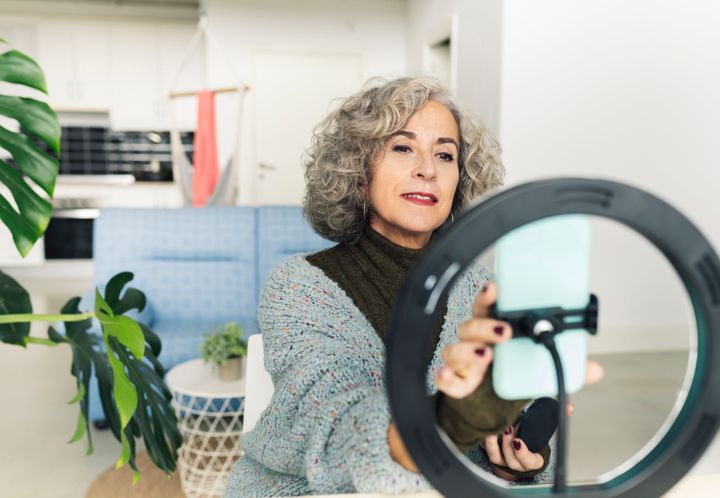
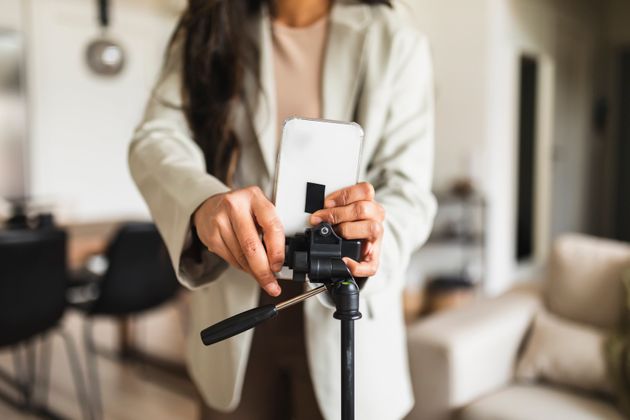
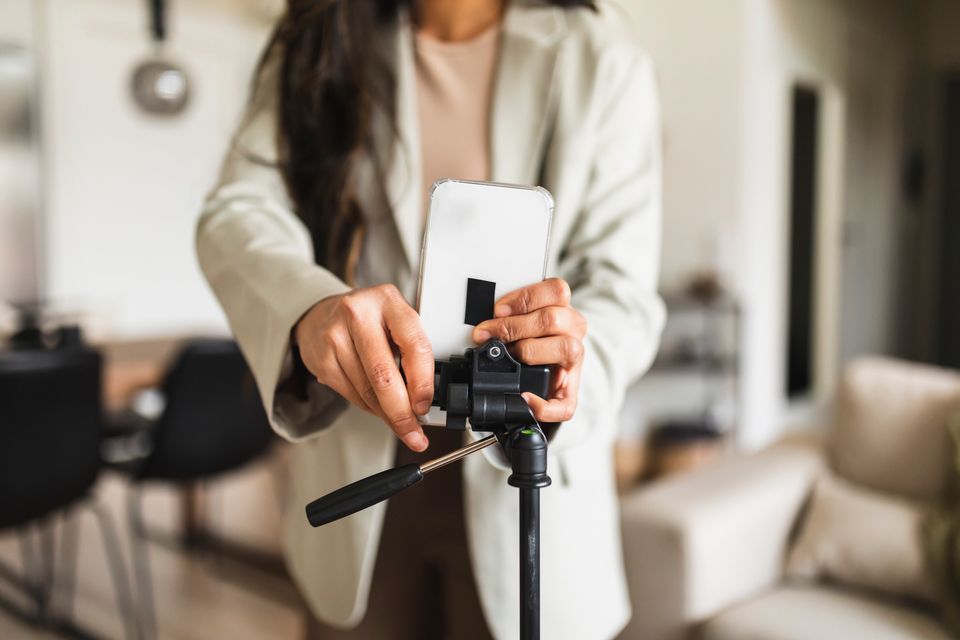

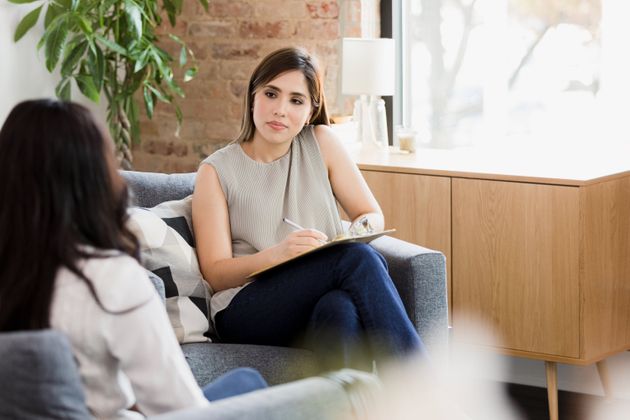
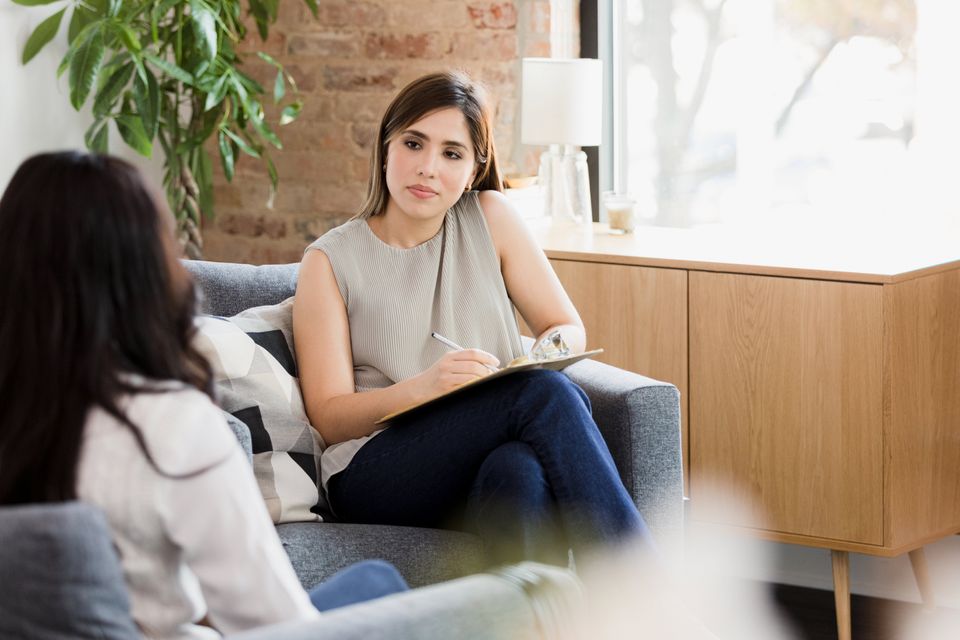
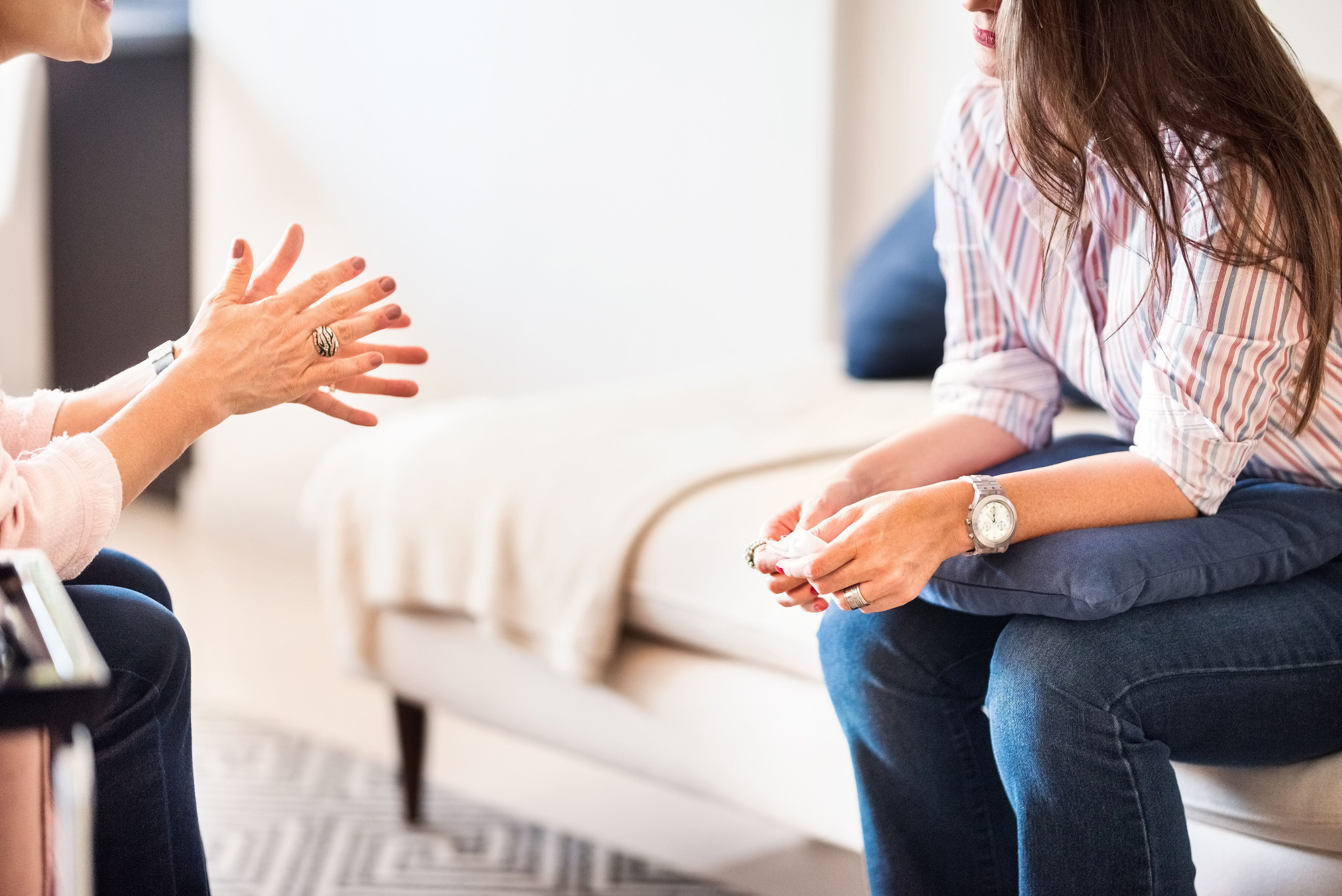
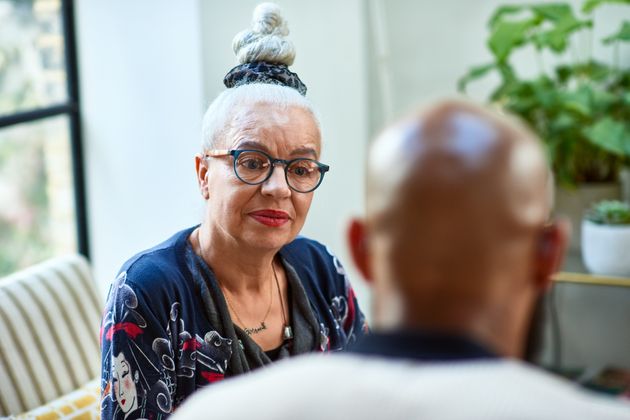
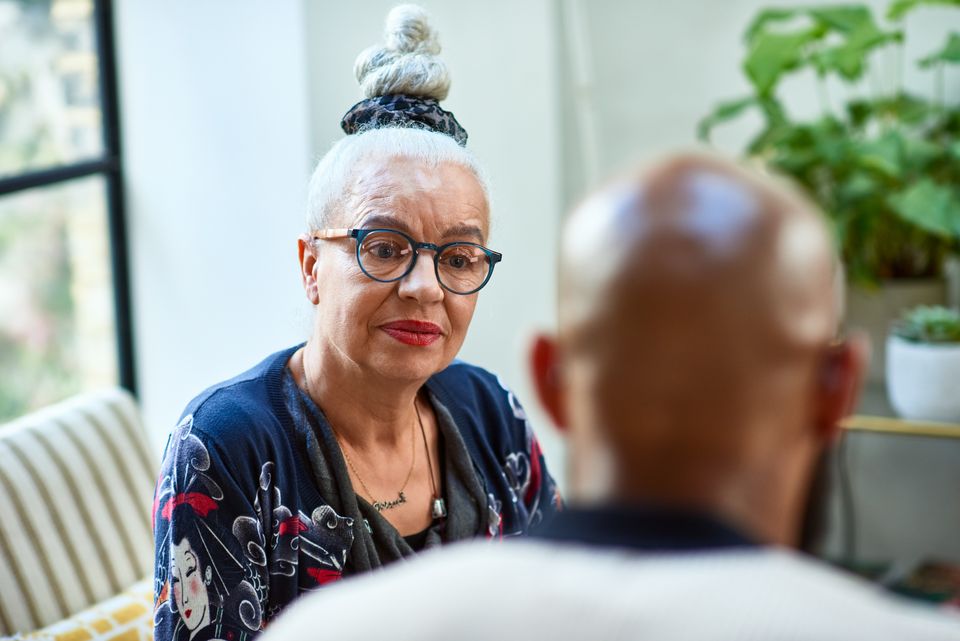
!["[I] set limits and boundaries around the information that I am consuming," one social worker tells HuffPost. "That can look like only watching the news for 10 minutes per day and not constantly refreshing my feeds."](https://www.wellnessmaster.com/wp-content/uploads/2021/09/12-ways-therapists-are-personally-coping-with-covid-anxiety-again-3.jpg)
